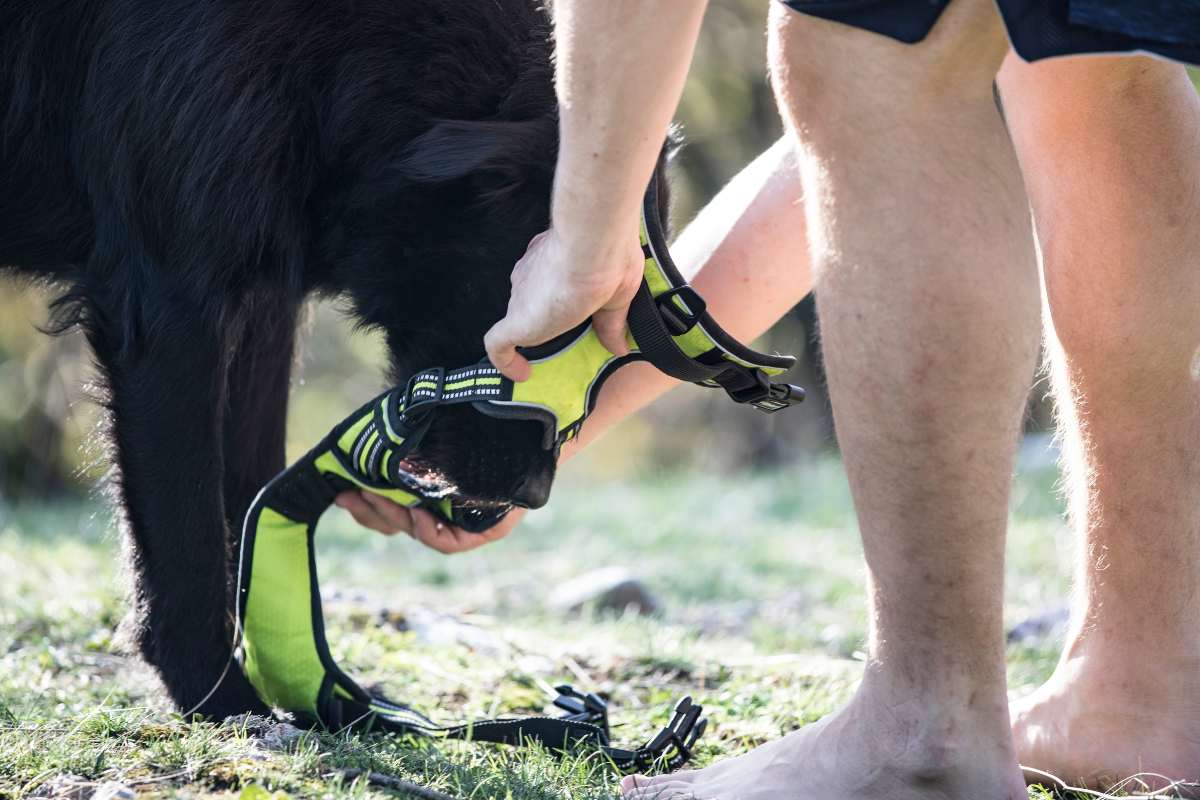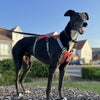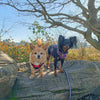Why doesn't My Dog Like Things Going Over Their Head

Dogs are known for their unique and diverse personalities, each exhibiting a range of behaviours and preferences. One common observation among dog owners is that some dogs don't like things going over their heads. This behaviour can manifest in various situations, such as during grooming, when putting on a harness, or even when someone reaches over them. Understanding why certain dogs exhibit this aversion is crucial for fostering a positive relationship with our furry companions.
Instinctual Sensitivity - Dogs, descendants of wolves, carry with them a set of instincts ingrained through generations of evolution. One such instinct is the desire to protect their vulnerable areas, particularly the neck and head. In the wild, a wolf's neck is a vital and sensitive part of its body, and any encroachment on this area could signal a threat.
While domestic dogs may not face the same threats as their wild ancestors, the instinctual sensitivity to having things over their heads can persist. This sensitivity can be especially pronounced in breeds that have been historically used for guarding or protection, such as German Shepherds or Doberman Pinschers.
Lack of Exposure and Socialisation - A dog's early experiences play a crucial role in shaping their behavior and reactions to different stimuli. Dogs that haven't been adequately exposed to various situations during their critical socialisation period, which typically occurs between 3 to 14 weeks of age, may develop fears or anxieties.
If a puppy doesn't encounter situations involving objects going over their heads during this critical period, they may develop a discomfort or fear of such experiences later in life. It is essential for dog owners to expose their puppies to different stimuli, including gentle handling and the sensation of objects over their heads, to build resilience and confidence.
Past Traumatic Experiences - For some dogs, their aversion to things going over their heads may be rooted in past traumatic experiences. Dogs are highly associative learners, and a negative encounter with a specific situation can leave a lasting impression on their psyche.
If a dog has experienced discomfort, pain, or fear associated with an object going over their head, they may develop a defensive or avoidance response to similar situations. This could result from a traumatic grooming session, an ill-fitting collar, or any other incident that created stress and discomfort for the dog.
Individual Sensitivities and Temperament - Just like humans, dogs have unique personalities, temperaments, and sensitivities. Some dogs may naturally be more sensitive or anxious than others, making them predisposed to disliking certain experiences, including having things go over their heads.
Factors such as genetics, early life experiences, and overall temperament contribute to an individual dog's sensitivity level. Understanding and respecting these differences can help dog owners tailor their approach to handling and training, ensuring a positive and trusting relationship.
Lack of Trust or Confidence - Trust is fundamental in the human-dog relationship, and dogs that lack trust in their owners or handlers may display aversions to certain situations, such as having things go over their heads. This lack of trust can stem from inconsistent training, harsh handling, or a general feeling of insecurity.
Building trust and confidence in a dog requires patience, positive reinforcement, and a consistent approach to training. Gradual exposure to new experiences, including gentle handling around the head and neck area, can help foster trust and reduce anxiety in dogs.
Medical or Physical Discomfort - In some cases, a dog's aversion to things going over their head may be due to an underlying medical or physical issue. Dogs may associate certain movements or sensations with pain, discomfort, or an uncomfortable physical condition, leading to a defensive response.
Before assuming behavioral issues, it's crucial to rule out any potential health concerns. Pain or discomfort could be caused by issues such as ear infections, neck or back problems, or dental pain. A visit to the veterinarian can help identify and address any medical issues contributing to the dog's discomfort.
Understanding why some dogs don't like things going over their heads is essential for promoting their well-being and strengthening the bond between dogs and their owners. Whether rooted in instinctual sensitivity, lack of exposure, past traumas, individual sensitivities, trust issues, or medical discomfort, addressing these concerns with patience and positive reinforcement can help dogs overcome their anxieties.
Dog owners play a crucial role in shaping their furry friends' behaviour through consistent training, positive experiences, and a compassionate approach. By respecting a dog's individuality and understanding their unique sensitivities, owners can create a safe and comfortable environment, fostering a positive relationship built on trust and mutual understanding.
Wiggles and Wags offers a range of harnesses designed to unclip around the neck, which is a good option for dog's that don't like things going over their heads.
-
Posted in
dog anxiety





